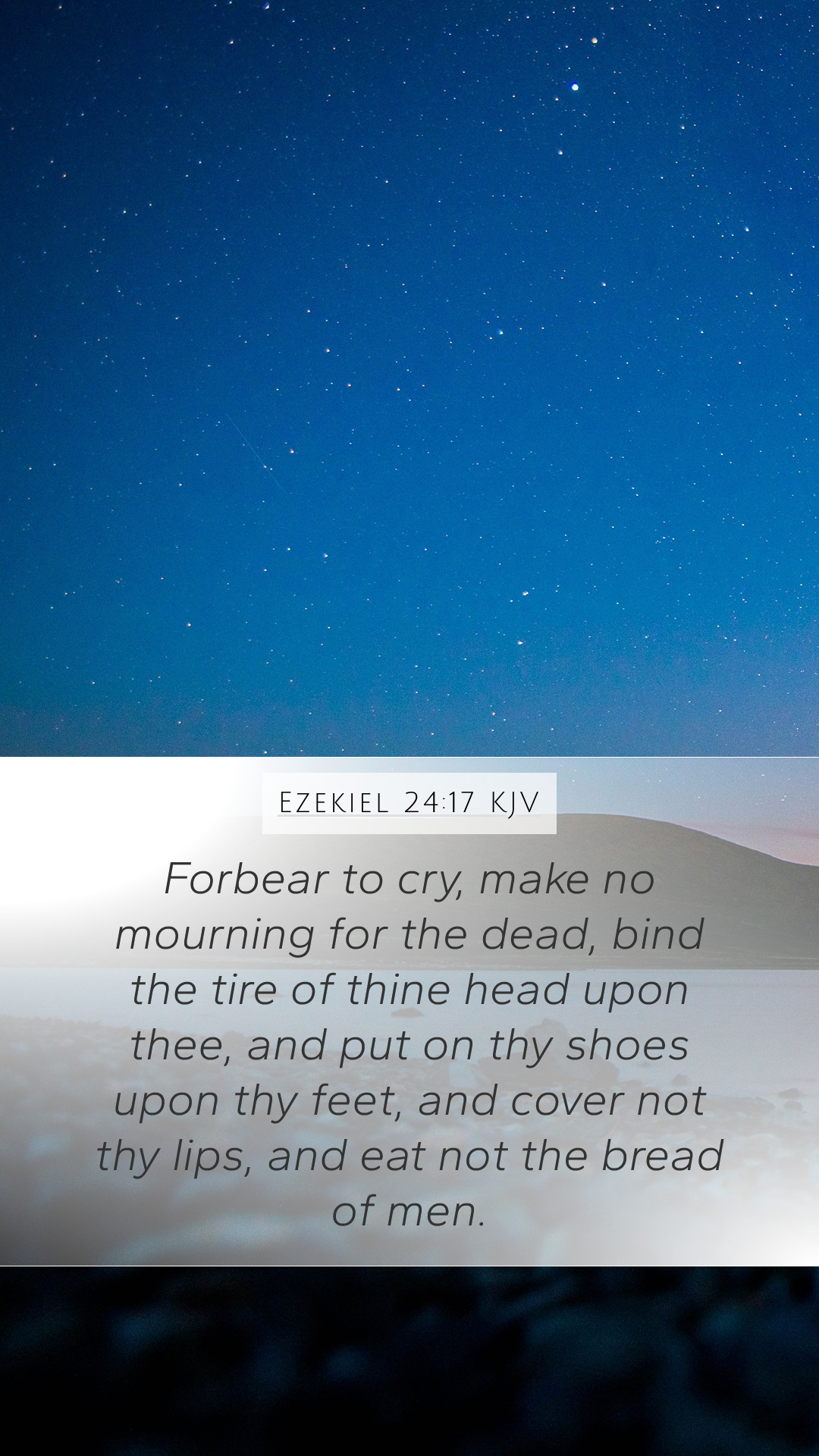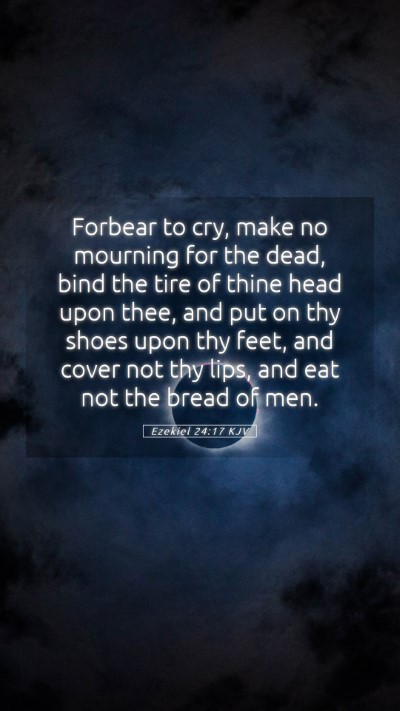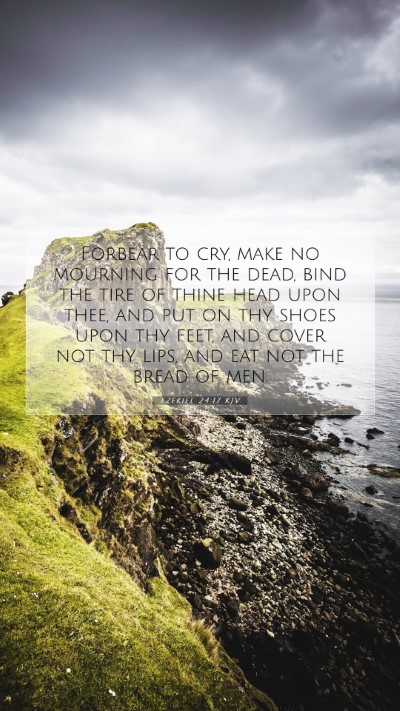Bible Verse Meaning and Commentary on Ezekiel 24:17
Ezekiel 24:17 states: "Sigh, but not aloud; make no mourning for the dead. Bind on your turban, and put your shoes on your feet; do not cover your lips, nor eat the bread of men." This verse provides a profound insight into the emotions of the prophet Ezekiel as he is commanded by God to maintain his composure in the face of personal tragedy. The speaker indicates not only the sorrow at the loss being experienced but also the divine restraint imposed on Ezekiel to act in a manner typically expected in a time of mourning.
Understanding the Context
This scripture arises from a painful message to the Jewish people about the impending destruction of Jerusalem. Ezekiel, often referred to as the "watchman for Israel," is instructed by God to use his life as a symbol of the consequences of rebellion against God.
Insights from Public Domain Commentaries
Matthew Henry's Commentary
Matthew Henry observes that God's command for Ezekiel to visibly abstain from mourning reflects the seriousness of the message God is conveying. He emphasizes that the prophet's external actions must correspond to the severity of the prophetic message, highlighting how the prophetic mandate at times requires personal sacrifice and a demonstration of divine purpose over human emotion.
Albert Barnes' Notes on the Bible
Albert Barnes expounds on the behavioral expectations for Ezekiel during this difficult time. He notes the significance of the turbans and shoes representing readiness for action and the continuation of one’s responsibilities. By refraining from typical mourning behaviors, Ezekiel serves as a poignant reminder that a greater purpose is at play, which is God's unfolding judgment on Israel.
Adam Clarke's Commentary
Adam Clarke highlights the tension between human grief and divine directives. He explains that zealous adherence to God's commands can sometimes inhibit expressions of natural sorrow, such as mourning. Clarke emphasizes the importance of distinguishing between the emotional responses of man and the sovereign will of God, suggesting that Ezekiel's distinctive behavior is a profound prophetic statement about the fate of Jerusalem and the ultimate reliance on God's control over situations.
Theological Implications
The actions commanded of Ezekiel lead to deeper theological reflections on mourning, responsibility, and the role of a prophet as an intermediary. His stoic demeanor serves as a stark warning to the people of Israel regarding their impending judgment while underlining the notion that divine sovereignty often supersedes human emotions.
Application of Scripture in Daily Life
This verse encourages readers to reflect on how they respond to loss and calamity in their lives. It invites consideration of a greater context where personal loss is nested within sovereign plans. Understanding this Scripture leads one to ask how to balance personal grief and the call to fulfill one’s responsibilities and duties even during trials.
Related Cross References
- Ezekiel 3:17 - The watchman duty of Ezekiel.
- Jeremiah 16:5 - God prohibits mourning for the fate of Jerusalem.
- Isaiah 22:12-13 - A lamentation over the loss of Jerusalem.
Further Study and Reflection
For those seeking deeper Bible study insights, consider exploring how Ezekiel's life and actions serve as a testament to understanding Biblical exegesis. Engage with Bible study groups or utilize online Bible study resources to dissect similar verses.
In conclusion, Ezekiel 24:17 challenges believers not only to understand divine command during personal crises but also encourages an exploration of how God’s sovereignty guides human action exceptionally during times of mourning. This allows for a richer understanding of Scripture and its present implications in the lives of believers today.


